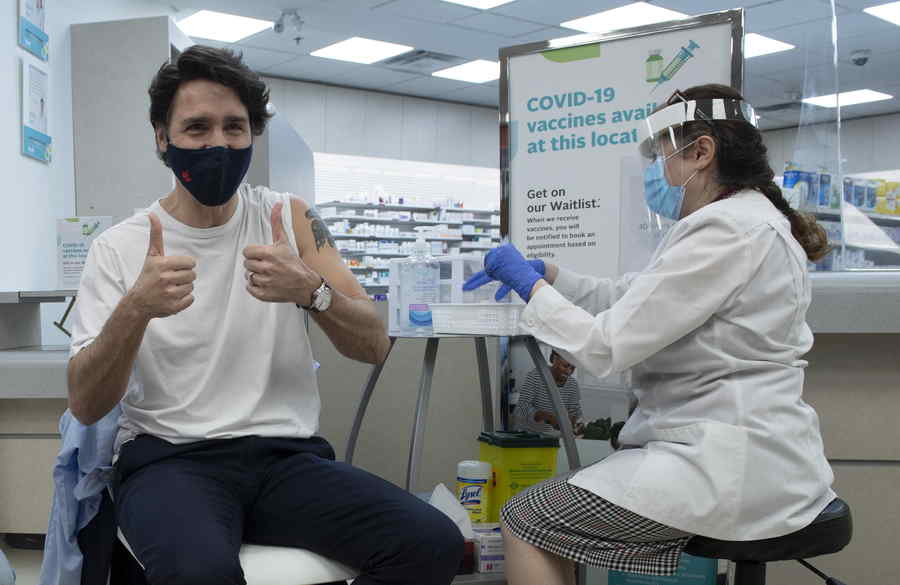While the Canadian Government and Health Department officials continue efforts to cover up their mishandling of their Covid-19 vaccine acquisition strategy, their newest policy could put many Canadian lives at risk.
If you listen to the politicians , one would think Canada is doing a great job in handling their vaccination program, despite the issues they have had with obtaining vaccine supplies.
According to the stats published by the New York Times, 30% of the Canadian population has received the first dose of the vaccine.
However if you look a little closer, one will notice that only 2.8% of Canadians have received the 2nd dose. It is the 2nd dose that moves you into the 95% percentile, greatly reducing the risk of catching Covid-19 and hopefully reducing the symptoms if one does get exposed to the virus.
Costa Rica for example, has provide the first dose to only 11% of the population, focusing on those most at risk. Now 5.6% of the population has received the 2nd dose, becoming fully vaccinated. That's double the rate of Canada.
In the US vaccines have reached 43% of the US population and 30% are fully vaccinated.
The government leadership in Canada with the cooperation of the Health experts on Covid policy, believe it is better to provide the first dose to as many as possible, potentially lowering their risk of getting Covid-19 to 60%. In the case of the Pfizer vaccine, the manufacturer recommendations clearly state the 2nd dose is required after 21 days.
Due to supply issues and this new strategy, they have to delay giving the 2nd dose of the vaccine to Canadians for 3-4 months.
The justification for such policy is based on statistics the Health Advisory Committee has put together, not from trial data.
Now Pfizer has come out with a statement essentially contradicting such policy advise.
We recognize that recommendations on alternative dosing intervals reside with health authorities and may include recommendations due to public health principles. However, as a biopharmaceutical company working in a highly regulated industry, our position is supported by the label and indication agreed upon with Health Canada and informed by data from our Phase 3 study.
Pfizer and BioNTech’s Phase 3 study for the COVID-19 vaccine was designed to evaluate the vaccine’s safety and efficacy following a 2-dose schedule, separated by 21 days. The safety and efficacy of the vaccine has not been evaluated on different dosing schedules as the majority of trial participants received the second dose within the window specified in the study design.
Data from the Phase 3 study demonstrated that, although protection from the vaccine appears to begin as early as 12 days after the first dose, two doses of the vaccine are required to provide the maximum protection against the disease, a vaccine efficacy of 95%. There are no data from this study to demonstrate that protection after the first dose is sustained after 21 days.
If this last statement is true, it implies that after 21 days anyone who received the first dose may not be any better off than those who did not get the vaccine at all.
While this release from Pfizer may be nothing more than a CYA statement in the chance that people who received the first dose later get infected by the Covid-19 virus, it does make it clear that the policy being pursued in Canada is not one supported by the company or their scientific trial results.
We should also note that there are several types of vaccines in use in Canada.
It is quite clear that this issue should be of concern to everyone who has received the first dose of this specific vaccine.
Leaders need to address this immediately or they are potentially putting millions at risk and in so doing could extend this "pandemic" well into the future.










